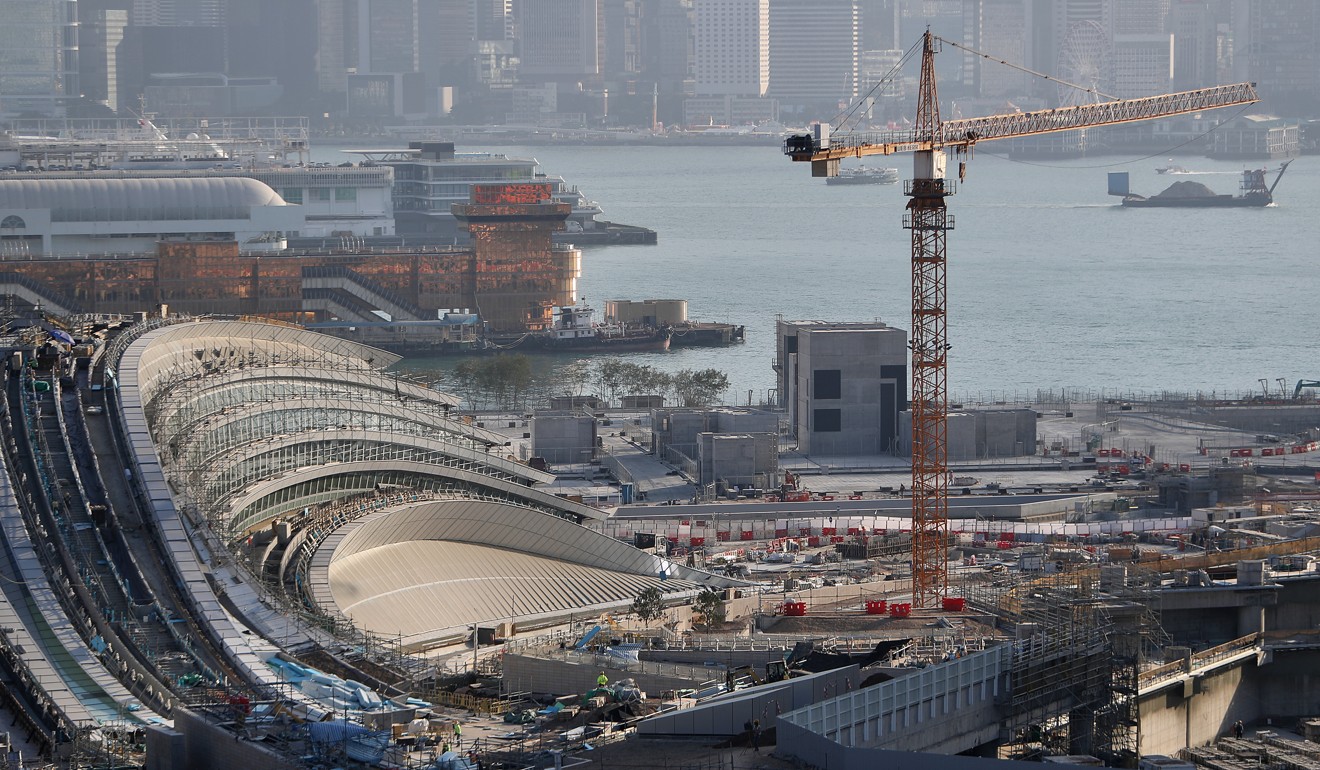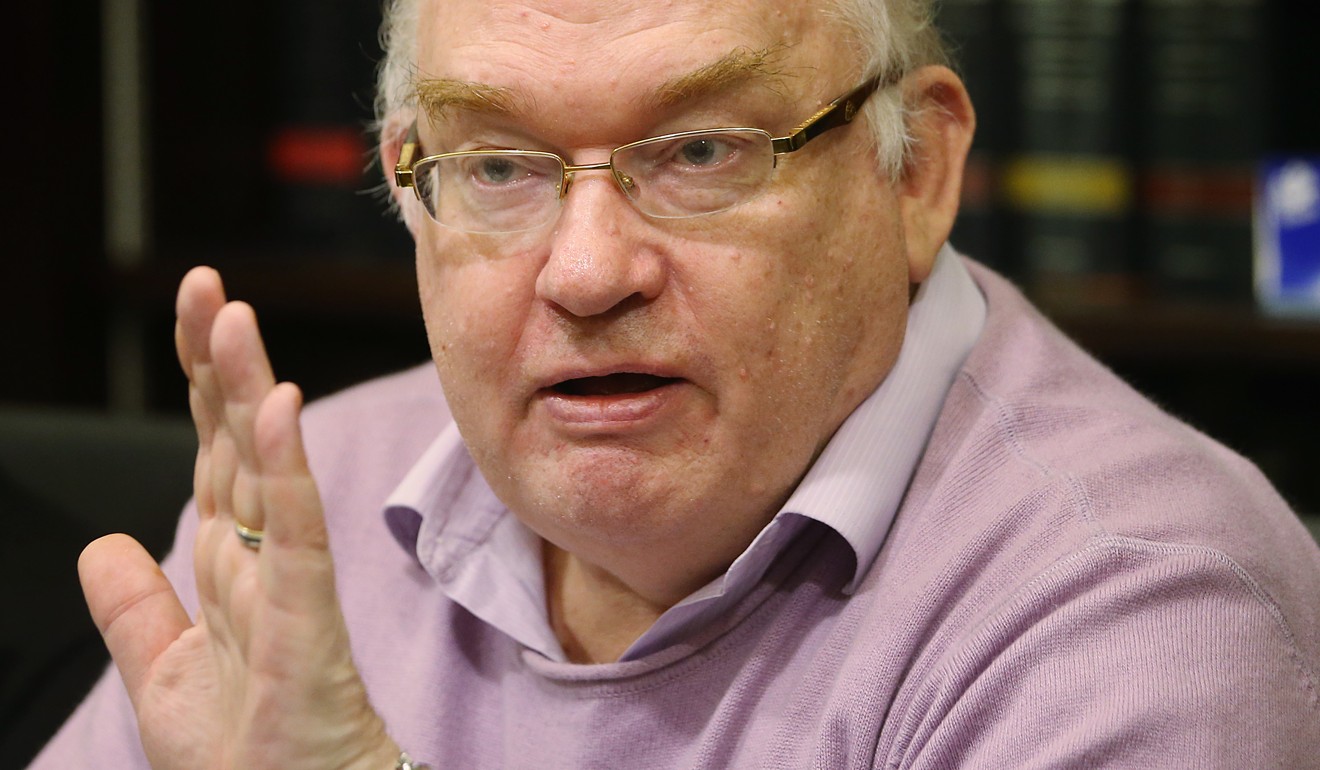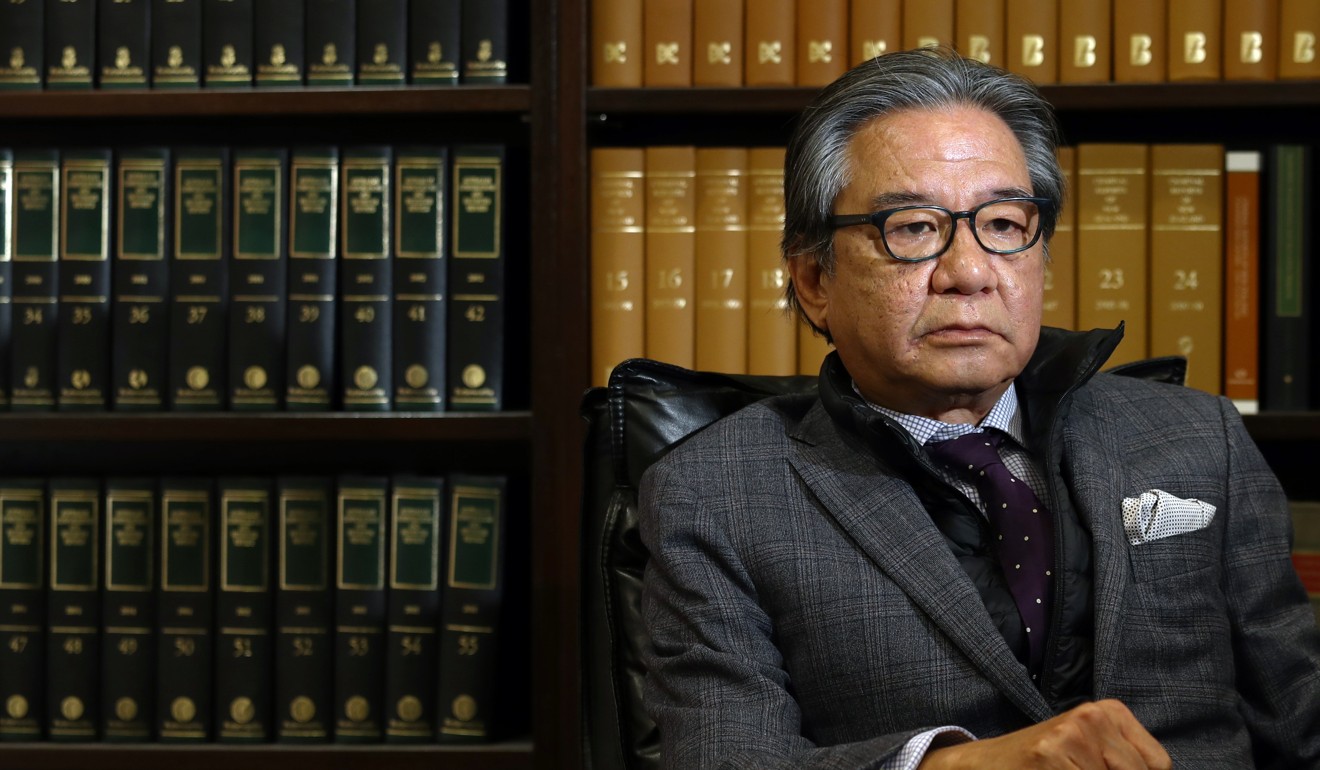
Hong Kong’s barristers go to the polls for tightest contest in years
The Bar Association’s leadership is up for grabs, as questions rage over its role in civic life and Hong Kong rolls from one legal controversy to another
On Thursday Hong Kong’s Bar Association will choose its new leadership in the most heated contest in years, against a backdrop of mounting concerns over rule of law in the city.
The incumbent bar council, led by Paul Lam Ting-kwok, will face a set of challengers spearheaded by human rights lawyer Philip Dykes. Dykes has said the professional body under Lam has been less vocal than before, and lamented what he said was its late response to the government’s joint checkpoint proposal for the cross-border rail link.

1. Why is the Bar Association important?
I’m just doing the right thing: barrister for Hong Kong pro-democracy activists
2. How does the election work?
There are six posts on the governing bar council up for grabs: the chairperson and five members. Members directly vote for chairperson in one poll, and pick their preferred five members from 11 candidates in another. The five members with the most votes will join the winning chairman on the council. This means candidates from both sides could end up winning seats.
3. And what makes this election special?
It is very rare for an incumbent chairman to face competition, with an unspoken rule that they stay in the post for two years. So when Dykes, who was association chairman in 2005 and 2006, announced his intention to run for the same post again it was immediately seen as a challenge to, and criticism of, Lam.

Opinion: Why Hong Kong’s judges may be set for yet another stormy year in 2018
And the elections come at a sensitive time in Hong Kong. A series of controversies in the past year – including the joint checkpoints and a court’s decision to unseat six pro-democracy lawmakers over the oath-taking saga at the government’s request – have sparked questions over whether the city’s rule of law is under threat. And there are new issues coming down the line in the form of new legislation, such as that against abuse of the national anthem, laws allowing for the joint checkpoints and the possible revival of national security legislation.
4. Is the poll being politicised?
That depends who you ask. According to Lam and his supporters, it is.
Lam last week called it “alarming and disheartening” to see “tactics commonly seen in political campaigns” being used in the election to the head of a professional body, as he reiterated the association should stay independent and free from political interference.
But Dykes has firmly denied the accusation. None of the members on his ticket, he said, was affiliated with any political party. He said their objective was always to advance the rule of law instead of any particular political agenda.
Opinion: Those who criticise our judges should be ashamed of themselves
5. What are the key differences between the two sides?
The key difference between the two parties regards what role the association should play.
On the “belated” response to the joint checkpoint plan, Lam said the association could only issue a detailed statement after the NPCSC unveiled the details of the arrangement last December, “to avoid speaking prematurely on the wrong facts and law”.
“Prudence, and respect for due process within the bar councill must not be misconstrued as tardiness, weakness or, worse still, censorship,” he said.
Joint checkpoint plan ‘cannot be challenged’ by city, Beijing official says
The Bar Association should take the initiative to speak up on legal issues of public interest, or even lead the public discussion on it
Lam’s opponents held a different view. They said Hongkongers might have been able to turn the tide of the co-location arrangement had the association flagged its concerns earlier when the government first floated the proposal in July.
Johannes Chan said the body should not take a passive position but a proactive role in defending the rule of law.
“The Bar Association should take the initiative to speak up on legal issues of public interest, or even lead the public discussion on it in a bid to equip the public with a better understanding of the rule of law,” he said. “I think that is perhaps the biggest difference between the two teams.”
That being said, the sides do not differ much on the legal issue itself.
Dykes has acknowledged the strongly worded statement that the association issued on the co-location arrangement, and a speech that Lam made in which he described the NPCSC’s decision as an “earthquake”.

6. How are the camps rallying support?
By Wednesday Lam’s ticket was ahead of Dykes’ in securing support among senior members, garnering support from at least 24 of the 98 senior counsels in town, compared to Dykes’ 16, according to online posts by the groups.
But the game is won and lost by winning the hearts and minds of the so-called young bar – barristers under seven years’ call – who make up of almost 40 per cent of members. That is why both camps have put forward measures in their election platforms to boost opportunities for junior members, many of whom struggle in the early years of their career.

